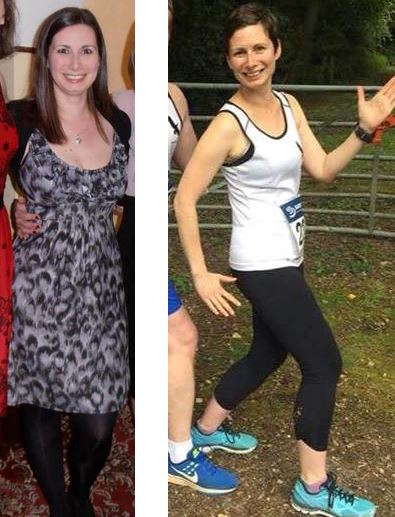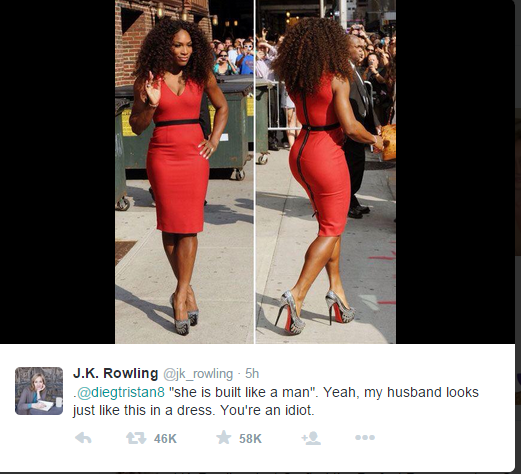I have been mired deep in the running world over the last year or so, and I’ve seen lots of articles, blogs and ads making reference to ‘running like a girl’. I’ve struggled to reconcile this with my idea of how I want to run. I don’t want to run like a girl. I actively avoid pink running kit (except for cross country). I don’t want to be considered a ‘female runner’ if the implication is that it’s somehow not as good as just being a ‘runner’.
But am I being unfair? What does running like a girl really mean? Is it any different to running like a boy? Or should it be? Is it a sexist label, or a badge of honour?
Sexism has been on my mind a lot lately. This could be due to the general Zeitgeist; the news is thick with stories illustrating why feminism is still very much needed in the modern world. Stories about sexism or sexual violence towards women being normalised or excused (as in the despicable Brock Turner case) are depressingly frequent reminders of what women still have to deal with all the damn time. I would be willing to bet that most women could give a daily example of being treated as ‘less than’ simply for being a woman.

I work in a traditionally male industry, blessedly for a progressive company which has an almost 50/50 gender split and a great attitude towards women in management. However my job involves dealing with other parties, such as building contractors. Not to stereotype, but sometimes this leads to frustrating occurrences of unconscious chauvinism.
Just last week a fit out contractor (generally speaking a decent guy) was doing his best to convince me that a suitable way of securing the doors into their workspace was to rig up a piece of 2 by 4 wood, attached by a series of Velcro strips through a door handle off to one side. This was clearly ridiculous from the outset. For a start the centre of gravity meant it was never going to hold across the door, and even if it did hold I couldn’t fathom how anyone with half a brain would think an arrangement the term ‘Heath Robinson’ could have been invented for was a suitable security solution in a building worth £80 million.
I stood there silently watching him struggle with his sad little bit of wood and Velcro. It was obvious he could feel my scepticism as he failed to get his improvised barricade to stay in place. But it was only when my older, male colleague also piped up that this was a stupid idea that he actually accepted defeat. He joked with my colleague that he had ‘thrown him under the bus’ by not backing him up, as if my un-practical little female brain wouldn’t have noticed how stupid his ‘security solution’ was had my male colleague not pointed it out. The way he automatically had this conversation over my head was so casual, so natural to him. I honestly don’t think he even realised his behaviour could be interpreted as sexist.
Thinking it over afterwards, I realised that it’s only recently that I’ve started to get properly annoyed when this sort of thing happens. It might sound strange, but I think I have running to thank for this.
No really, hear me out.
My pre-running club self was curvier, softer, and had a rounder face and longer hair. I was less assertive at work, for fear of being labelled a bitch for behaving in a way which would be perfectly acceptable if I were a man. That’s a cliché I know, but it’s a cliché because it’s true – I have seen this happen to other women. I was not confident in my own ability, and often deferred to others regardless of whether I was supposed to be in charge. Work was my main focus, so I took it very personally, and in turn this gave me higher stress levels and a reluctance to act boldly in case I made a decision which jeopardised my job.
The current, post marathon, club runner me is different in lots of ways. I am more confident. My self-esteem is higher because running affords you the opportunity to spend priceless time thinking about how your body moves and what it can do, and not simply how it looks. I now think of my body as an instrument which must be fuelled and honed in order to help me to achieve my goals. I no longer worry if my bum looks big in something; instead I do specific exercises to increase the power in my glutes.
I am leaner and stronger, and I like having more definition and fewer curves. I have an entirely new face shape that can take the pixie crop I always wanted but wasn’t brave enough to get. The old me would have worried whether my husband would like me with short hair and wouldn’t have gone for the chop. The new me was genuinely confused when my hairdresser asked whether he would object – clearly that’s irrelevant as it’s not his hair.

Because running allows me space both to think about nothing at all and to work out any problems, I live less inside my own head. My focus is split between more than one thing, which doesn’t mean I care any less about work but rather that it is in perspective within my life. This allows me to deal with challenging situations with more clarity.
I find that I speak my mind more, and I waste less time thinking about other people’s impressions of me. I’m more likely to stand up for myself. I speak with more authority, and I am able to give instructions at work without worrying about coming over as aggressive instead of assertive.
Thinking back to my hapless fit out contractor messing about with his bit of wood, I called him out on it immediately because what he was proposing was clearly stupid. This time last year, I’m not sure I would have done.
A lot of this does have to do with having completed a marathon and the training that goes with it. Regardless of pace, training for a marathon is damn hard work. It requires a huge amount of discipline and determination and it changes your perception of what you are capable of doing. For me, putting in those 400 plus miles re-defined my sense of who I am.
There was a time in my teens when I knew exactly who I was and what I thought about things, when I was totally comfortable in my own skin and didn’t feel the need to apologise for myself. Life and other issues in the nearly 20 years since had almost taken that person away from me. She was hanging in there, but skulking at the back trying to be inconspicuous in case people didn’t like her, hiding behind all the other versions of herself who had been pushing in the queue.
Marathon training sharpened my focus and cleared out a lot of unnecessary internal chatter. In doing so it gave me that best version of myself back, and it added more to her. I am now the sort of person who can pop out on a Sunday and rattle off 10 miles like its perfectly normal. The sort of person who feels like death halfway through a race, but doesn’t stop. The sort of person who puts her real opinions into writing and shares them with others, because I won’t apologise for my own thoughts.
To the pre-club version of me, this new person is practically a superhero, and she is not taking your shit, or your stupid bit of wood and Velcro.
So how does this fit in with whether or not I run ‘like a girl’?
Well, I have caught myself a few times recently wondering if, paradoxically, I get more annoyed at sexist behaviour towards me as a woman because the masculine side of my personality has become more pronounced. Or put another way, since I started taking running more seriously, have I become less feminine as I’ve become more athletic (athletic being a relative term here)? I have certainly become more assertive and sure of myself.
I asked my husband if he thinks I am less feminine than I was when we met. He thinks not, but agrees with me that I was never what might be termed ‘girly’ in the first place – not in a pink and flowers sort of way. In fact on a day to day basis, I rarely paid attention to the fact that I’m a woman unless I was being treated badly because of it.
For context, I was brought up in a family where my beloved Grandma, when asked where she thought a woman’s place was, responded with the immortal line ‘in charge’. I have been raised to value my contribution as equal to any other person’s, regardless of gender. When I set out to become a marathon runner, there was never any question that I wouldn’t be able to do it because I would be running it ‘like a girl’. But still the autopilot in my brain connects ambition, assertiveness and athleticism with the more masculine side of my personality.
This illustrates how easy it is to become part of the problem by thinking in the way we have been conditioned to by society in the main, even when our upbringing and our actions show us that the opposite view is true.
The wider debate about what it means to be a woman in sport is a hot topic at the moment. Anna Kessel wrote a fantastic article in the Guardian earlier this month about the difference professional sportswomen could make to our approach to body image if only we can allow that to happen. The article mentioned the recent British Cycling sexism row, and an instance I was unaware of in which Jessica Ennis-Hill, World Champion Heptathlete, was labelled ‘fat’ by a senior representative of British Athletics.
There was also the time Serena Williams was called out for ‘looking like a man’ by a highly enlightened member of the Twitterati, prompting an amazing clapback from JK Rowling accompanied by a picture of Serena in a scarlet bodycon dress and ski high Louboutins looking every inch the Amazonian goddess.

Serena Williams can walk (and slay) in those killer heels, and she can hit a tennis ball at 207mph.
Jessica Ennis-Hill became the World Heptathlon Champion a year after giving birth to her first child – something by definition a man could never achieve. They are just two examples of women in sport who clearly demonstrate that it is possible to be both feminine and athletic and that these are not mutually exclusive concepts; if anything the fact that they are women makes them more powerful.
The Always ‘Like a Girl’ ad and the excellent ‘This Girl Can’ campaign both highlight the way in which women are starting to take the ‘running like a girl’ label and make it mean something ‘more than’, or at least ‘equal to’ instead of ‘less than’. Those campaigns are about female strength, but not just that; they are about taking the thing you want to do – running, swimming, hitting a tennis ball at 207mph – and doing it your way as an individual.
This is a more powerful message than simply categorising behaviours into ‘male’ or ‘female’. There is a growing argument for looking away from gender itself as a binary concept, and accepting that there are several sides to every person and that things are not so easily defined.

I recently attended a women-only seminar about running and found myself getting frustrated with a lot of what was discussed by the group. Several ladies in the room seemed to be putting obstacles in their own way with regard not just to improving their running, but getting out there at all – I’ll get my trainers muddy, it’s too hard to do a route with hills, my husband won’t stay on his own with the kids.
My immediate reaction to all of these comments was that these women should ‘woman-up’ and get on with their running. Surely everyone wants to improve and show the world what they’re made of, you just make the time (and possibly give that particular husband either a good talking to or his marching orders), right?
But why should they? They were talking about their running, not mine. Maybe they are perfectly happy with the same 3 mile route around the village. Maybe they aren’t silly enough to want to run multiple marathons. Maybe they don’t care about getting faster. Maybe they are fantastic mothers and their children take priority. Maybe this is their version of running like a girl. And that’s absolutely fine.
I do believe I am even less stereotypically ‘girly’ now than I used to be. And I believe that running has brought me back to the person I was, and the person I had missed being for a long time. But why should becoming a stronger and more assertive version of myself mean that I am in some way less of a woman?
Committing to improve at my sport hasn’t made me more masculine, in the same way that Jessica, Serena and others are not less feminine because they are outstandingly good athletes. It has, however, helped me to redefine what being ‘feminine’ means to me.
‘Running like a girl’ doesn’t have to be a statement that requires us to dress in pink kit and approach sport in a traditionally ‘girly’ manner. It’s about redefining and adding to the conversation about what ‘like a girl’ means. In most cases, it’s actually about having more challenges to overcome which are unique to being a woman, and getting on with it anyway. It’s about women breaking out and showing the world that we don’t accept one definition of womanhood, that there is more than one way to be a woman, and none of those ways is better or worse than any other.
And it’s also about the fact that as long as we have to deal with idiots and their little bits of wood and Velcro, then we need the definition ‘like a girl’, to prove that girls can do things just as well as boys. And that often, we do it better.
So yes, I do run like a girl. Because I run like me.
And what?

I love this. Very well thought through and empowering. A friend of mine used the fact that she thought muscles were unfeminine as “an excuse” not to do strength training. I mean if she doesn’t want muscle definition, that’s fine, but it wouldn’t make her less feminine if she did. And I personally love noticing that I’m stronger, fitter and yes – have more muscle tone than I used to before I took an active interest in working out. That’s all part of my version of womanhood and femininity.
LikeLike
Thank you! It’s strange that a lot of people don’t equate outward strength with being feminine when we all know how strong women are on the inside, isn’t it?
LikeLiked by 1 person
Indeed!
LikeLike